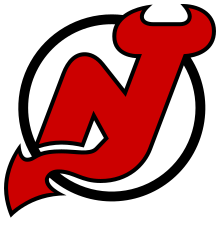Free Agency Negotiation Period Open
Jan 5, 2022 9:14:31 GMT -5
Philadelphia Flyers, Buffalo Sabres, and 6 more like this
Post by Nashville Predators on Jan 5, 2022 9:14:31 GMT -5
Its January again, which mean the negotiation period for free agents is officially open. Teams have until the trade deadline to submit an offer for any pending UFA or RFA.
A couple of reminders:
- any player 27 or older as of July 1st, 2022 is considered a UFA. Any player 26 or younger is considered an RFA. Please send offers to the appropriate email,
- Please attach some type of negotiation / comparisons along with your contract offer. We base our negotiations off VHL contracts, not NHL contracts, so make sure to look back through previous years for comparable contracts (see below for what we expect in a contract offer)
- All signed UFAs will have a 50 game NTC going into next season
Also please consider the following when developing a justification for your contract offer:
1. Comparable Contracts:
We base our contracts / negotiations of NHL statistics and VHL contracts. Our market is dictated by what our GM's are willing to pay for their players, not how much you feel they are worth. Please glance through the in-season signing in the VHL free agency threads from previous seasons to find contract comparisons. We DO NOT use signings during the auction period, as that is silly season, and a completely free and open market
2. Negotiations / Arguments:
One thing that drives us nuts is when GMs send an offer with no comparison or accompanying statistical / contextual arguments. It really doesn't take that long to find a couple of recently signed players, look at the NHL stats page, and put together a paragraph or two. You can use any conventional stat, advance metric, or contextual argument you wish to make your case. We generally ask you use more than one years worth of stats, but that can vary depending on the player (see #3 below). How in depth you go is up to you, but if you put more effort into the negotiation, you'll likely come out with a better deal.
3. RFA vs. UFA
How we look at a stats varies based on age, and whether a player is an RFA or UFA.
RFA's are generally younger, and still developing as players. Using a player's rookie and/or sophomore numbers in a negotiation only serves to depress their stats and doesn't account for player growth. We tend to weigh an RFAs current stats more heavily, as they are better predictors of future success. If you want a long term deal for an RFA, future growth and any years of UFA eligibility bought in the contract must also be taken into account. Bridge deals will usually be less in terms of overall value, but will still be based on VHL comparables.
For UFA's we focus on the past 2-3 seasons of statistics and look for trends to determine a players value. Re-signed UFA will almost always get less than what they could sign for in the off-season free agent bidding, but we will not re-sign a UFA if we do not feel they are getting close to market value. We are not trying to get the best deal for all parties, we are trying to get the best possible contract. There are no home town discounts. We are more than willing to let pending UFAs walk to free agency, so bring your big boy pants to the negotiating table, and expect to pay more than you probably want to if you want to keep a player. This brings us to.....
4. Low balling
If you send a low ball offer with no accompanying argument, you will get an equally ridiculous high ball offer in return. Please don't waste our time...
5. Injuries
One common argument we get from GMs is that injury prone players deserve less money. As a Staff, we have always argued against this as our ratings are based on "per game" stats instead of overall numbers. You may be able to argue the length of the deal down, but the yearly salary of the contract is generally not affected by injury, unless it is something catastrophic where the player misses most of the season
6. Flat Salary Cap
There have been a couple of arguments made that the flat cap means players should be taking pay-cuts / discounts. We have been negotiating contracts for almost two years now, knowing the cap would be flat, and have not signed one player to a discounted rate based on the flat cap. We are a league that plays with fake money. There are no real financial implication of the pandemic in the VHL and each GM still has the capability to spend to the cap. There may be a lack of contract inflation in the coming years, but we see no reason why the current cap situation means players should be receiving discounts compared to their VHL comparables.
A couple of reminders:
- any player 27 or older as of July 1st, 2022 is considered a UFA. Any player 26 or younger is considered an RFA. Please send offers to the appropriate email,
- Please attach some type of negotiation / comparisons along with your contract offer. We base our negotiations off VHL contracts, not NHL contracts, so make sure to look back through previous years for comparable contracts (see below for what we expect in a contract offer)
- All signed UFAs will have a 50 game NTC going into next season
Also please consider the following when developing a justification for your contract offer:
1. Comparable Contracts:
We base our contracts / negotiations of NHL statistics and VHL contracts. Our market is dictated by what our GM's are willing to pay for their players, not how much you feel they are worth. Please glance through the in-season signing in the VHL free agency threads from previous seasons to find contract comparisons. We DO NOT use signings during the auction period, as that is silly season, and a completely free and open market
2. Negotiations / Arguments:
One thing that drives us nuts is when GMs send an offer with no comparison or accompanying statistical / contextual arguments. It really doesn't take that long to find a couple of recently signed players, look at the NHL stats page, and put together a paragraph or two. You can use any conventional stat, advance metric, or contextual argument you wish to make your case. We generally ask you use more than one years worth of stats, but that can vary depending on the player (see #3 below). How in depth you go is up to you, but if you put more effort into the negotiation, you'll likely come out with a better deal.
3. RFA vs. UFA
How we look at a stats varies based on age, and whether a player is an RFA or UFA.
RFA's are generally younger, and still developing as players. Using a player's rookie and/or sophomore numbers in a negotiation only serves to depress their stats and doesn't account for player growth. We tend to weigh an RFAs current stats more heavily, as they are better predictors of future success. If you want a long term deal for an RFA, future growth and any years of UFA eligibility bought in the contract must also be taken into account. Bridge deals will usually be less in terms of overall value, but will still be based on VHL comparables.
For UFA's we focus on the past 2-3 seasons of statistics and look for trends to determine a players value. Re-signed UFA will almost always get less than what they could sign for in the off-season free agent bidding, but we will not re-sign a UFA if we do not feel they are getting close to market value. We are not trying to get the best deal for all parties, we are trying to get the best possible contract. There are no home town discounts. We are more than willing to let pending UFAs walk to free agency, so bring your big boy pants to the negotiating table, and expect to pay more than you probably want to if you want to keep a player. This brings us to.....
4. Low balling
If you send a low ball offer with no accompanying argument, you will get an equally ridiculous high ball offer in return. Please don't waste our time...
5. Injuries
One common argument we get from GMs is that injury prone players deserve less money. As a Staff, we have always argued against this as our ratings are based on "per game" stats instead of overall numbers. You may be able to argue the length of the deal down, but the yearly salary of the contract is generally not affected by injury, unless it is something catastrophic where the player misses most of the season
6. Flat Salary Cap
There have been a couple of arguments made that the flat cap means players should be taking pay-cuts / discounts. We have been negotiating contracts for almost two years now, knowing the cap would be flat, and have not signed one player to a discounted rate based on the flat cap. We are a league that plays with fake money. There are no real financial implication of the pandemic in the VHL and each GM still has the capability to spend to the cap. There may be a lack of contract inflation in the coming years, but we see no reason why the current cap situation means players should be receiving discounts compared to their VHL comparables.





















